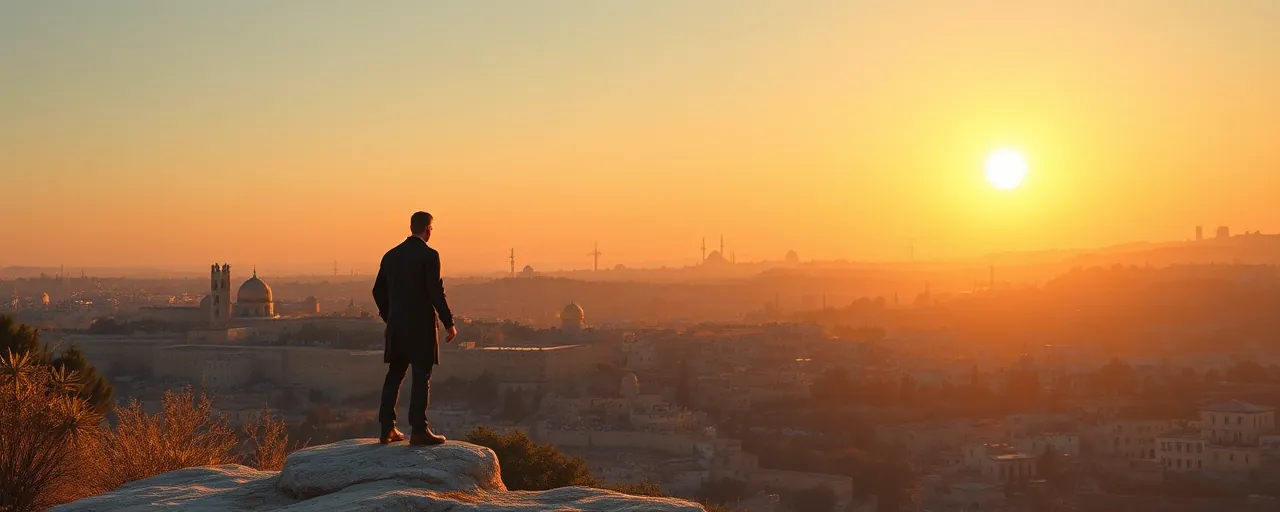A Line in the Sand
Secretary of State Marco Rubio’s recent call with Israeli Prime Minister Benjamin Netanyahu wasn’t just diplomatic theater; it was a thunderclap of American resolve. With the Middle East teetering on the edge of chaos, Rubio didn’t mince words. He reaffirmed the United States’ ironclad commitment to Israel, a nation under siege from Hamas terrorists holding 59 hostages in Gaza. This isn’t some tepid gesture from a bygone era of appeasement. It’s a clear signal that under President Trump’s leadership, America is done playing nice with those who threaten our allies and our values.
The stakes couldn’t be higher. Gaza’s humanitarian mess, fueled by Hamas’s refusal to release hostages and Israel’s relentless military response, has the world wringing its hands. But Rubio’s conversation cut through the noise, zeroing in on what matters: freeing those captives and standing firm against terror. Add in the administration’s new tariffs, announced April 5, 2025, and you’ve got a one-two punch aimed at securing America’s interests and sending a message to the globe: we’re back, and we mean business.
Hostages and Hardball
Let’s talk facts. Hamas snatched 251 people on October 7, 2023, kicking off this nightmare. After some releases, 59 remain trapped as of now, April 2025. Negotiations? Stalled. Hamas demands a permanent ceasefire and Israeli withdrawal, all while clutching power in Gaza like a petty dictator. Israel, rightly, isn’t budging. Over 1,000 Palestinians have died in recent weeks from intensified operations, a grim toll, but one that lands squarely on Hamas’s doorstep for using civilians as shields. Rubio’s call wasn’t about coddling terrorists; it was about pushing Israel’s fight to free its people, a fight America backs without apology.
History backs this up. Since Hamas took Gaza in 2007, it’s been a launchpad for chaos, not a cradle of peace. The U.S. has poured billions into Israel’s defense, from Reagan’s deals to Trump’s $8.8 billion arms sale in March 2025. Why? Because Israel’s security is our security. The Bureau of Near Eastern Affairs, steering U.S. policy in the region since 1992, knows this dance well. Its mission isn’t to hand out participation trophies; it’s to protect American interests and allies like Israel from threats like Iran’s proxies.
Tariffs as a Trump Card
Then there’s the tariffs. President Trump’s April 5 announcement of 10% to 50% duties on imports isn’t just economic flexing; it’s strategic genius. Sure, JPMorgan frets about a 2% CPI spike or a $660 billion tax hit, and hand-wringers warn of recession. But this isn’t about short-term comfort; it’s about long-term strength. By hitting back at nations soaking U.S. exports with their own duties, Trump’s leveling the field. And in the context of Rubio’s call, it’s a signal to Israel’s foes, like China and the EU, that America’s economic might stands ready to back its diplomatic muscle.
Critics whine about inflation or global backlash, but they miss the point. These tariffs echo the grit of the 1980s, when Reagan rebuilt America’s backbone against Soviet threats. Today, it’s about countering trade imbalances and funding our priorities, like supporting Israel. The Bureau of Near Eastern Affairs doesn’t just talk peace; it backs winners who share our fight. Hamas and its enablers don’t get a vote in America’s economic playbook.
Dismantling the Bleeding Hearts
Of course, the usual suspects, like UN agencies and humanitarian advocates, clutch their pearls over Gaza’s crisis. Over 50,000 dead since 2023, hospitals dark, famine looming, they cry. Fair enough, it’s ugly. But their solution, endless aid with no strings, ignores the root: Hamas’s chokehold. Israel’s security corridors and no-go zones aren’t cruelty; they’re pressure to break a terrorist grip. Rubio’s focus on hostages over hand-holding aligns with reality, not utopian dreams. The U.S. isn’t here to bankroll Hamas’s next rocket stash.
This isn’t new. The U.S.-Israel bond, forged in the Cold War and hardened by the Abraham Accords, thrives on pragmatism. Trump’s vision of a Gaza ‘Riviera’ isn’t naive; it’s a dare to transform a war zone into something better, once Hamas is crushed. Opponents call it callous, but they’re stuck in a fantasy where evil negotiates in good faith. Rubio and Trump know better: strength, not sentiment, wins.
The Verdict Is In
Rubio’s call with Netanyahu, paired with Trump’s tariff hammer, paints a picture of an America that’s awake and unapologetic. It’s not about hugging it out with terrorists or bowing to global whining. It’s about defending our ally, freeing hostages, and flexing economic power to back it up. The Middle East isn’t a sandbox for soft hearts; it’s a battlefield where resolve matters. The U.S., through the Bureau of Near Eastern Affairs and beyond, has picked its side, and it’s the right one.
So here we stand, April 2025, with Gaza burning and the world watching. America’s not blinking. Rubio’s words to Netanyahu weren’t just a pep talk; they were a promise. Israel fights, we fight. Tariffs hit, we win. That’s the deal, and it’s one every American who values freedom can cheer. The doubters can stew, but this is leadership, raw and real, for a world that doesn’t reward weakness.
